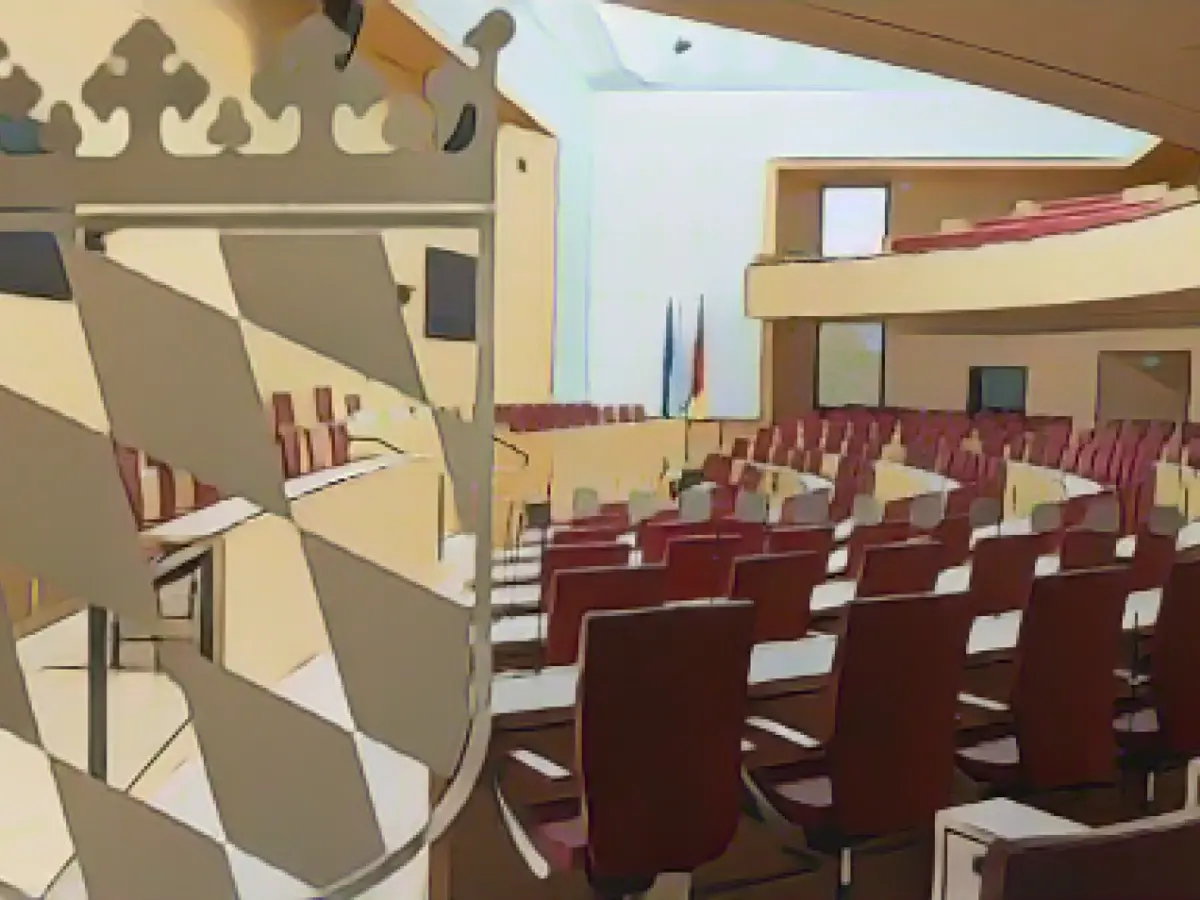Finances - SPD and IG Metall demand relaxation of the debt brake
The IG Metall trade union in Bavaria and the SPD parliamentary group in the Bavarian state parliament are calling for the debt brake to be relaxed at federal level and then also in Bavaria. The debt brake is the cause of the investment backlog in roads, railways, bridges, schools and housing construction, said IG Metall district manager Horst Ott in Munich on Thursday. SPD parliamentary group leader Florian von Brunn also believes that an intelligent reform is needed to put Germany and Bavaria in a good position for the future.
Von Brunn emphasized that the necessary improvements could not be paid for out of petty cash. Investments are important for maintaining jobs in industry, for the energy transition with the expansion of wind power, power lines and geothermal energy and for the renovation of the railroads. Subsidies for lower energy prices also make sense. "Credit-financed public investment in good infrastructure and future technologies is worthwhile because it leads to more growth and prosperity."
The debt brake prevents Germany and Bavaria from tackling the gigantic challenges, said Ott. "It is slowing down economic growth and burdening future generations with the follow-up costs. The debt brake therefore creates debt - that is absurd." The country is at a crossroads: "Either we invest massively in the transformation of industry now and thus secure our prosperity, or we prefer to make savings and watch sadly as industry moves away and jobs are lost."
The CSU and the CDU are categorically against any changes to the debt brake. Without votes from the CDU/CSU, however, the necessary two-thirds majority in the Bundestag and Bundesrat for a constitutional amendment cannot be achieved.
"In Germany, more experts are concerned with the question of how to circumvent the debt brake in line with the constitution rather than how to generate higher tax revenues through higher economic output. This is the completely wrong approach," said Finance Minister Albert Füracker (CSU) to the German Press Agency. "We in this country must finally start thinking again about what we can do to increase tax revenues and get money back into the coffers."
Although Federal Finance Minister Christian Lindner (FDP) rejects a fundamental reform of the debt brake, he recently announced plans for a partial reform in the coming year. Due to the gigantic German national debt, the debt brake was enshrined in the Basic Law in 2009.
Read also:
- A clan member is punished here
- Traffic lawyer warns: Don't talk to the police!
- Will he be convicted as Jutta's murderer after 37 years?
- He also wanted to kill his cousin
- The debate surrounding the relaxation of the debt brake extends beyond the Bavarian state parliament, with parties like SPD and trade unions like IG Metall advocating for this change at the federal level as well.
- This call for relaxation is primarily driven by the need to address the investment backlog in various sectors, such as roads, railways, bridges, schools, and housing construction.
- SPD leader Florian von Brunn argues that the necessary improvements cannot be funded out of 'petty cash', highlighting the importance of investments for job security in industry, energy transition, and infrastructure renovation.
- The energy transition, which includes the expansion of wind power, power lines, and geothermal energy, is a key part of this economic strategy, ensuring Germany's role in the global shift towards renewable energy sources.
- However, some parties like the CSU in Bavaria are against any changes to the debt brake, making it challenging to achieve the required two-thirds majority in the Bundestag and Bundesrat for a constitutional amendment.
- Despite the resistance, Federal Finance Minister Christian Lindner (FDP) has recently announced plans for a partial reform of the debt brake, acknowledging the impact of the gigantic national debt on the country's economic prosperity.
- Florian von Brunn's comments align with the view of many experts in Germany, who argue that focusing on circumventing the debt brake constitutionally rather than increasing tax revenues is the incorrect approach.
Source: www.stern.de








